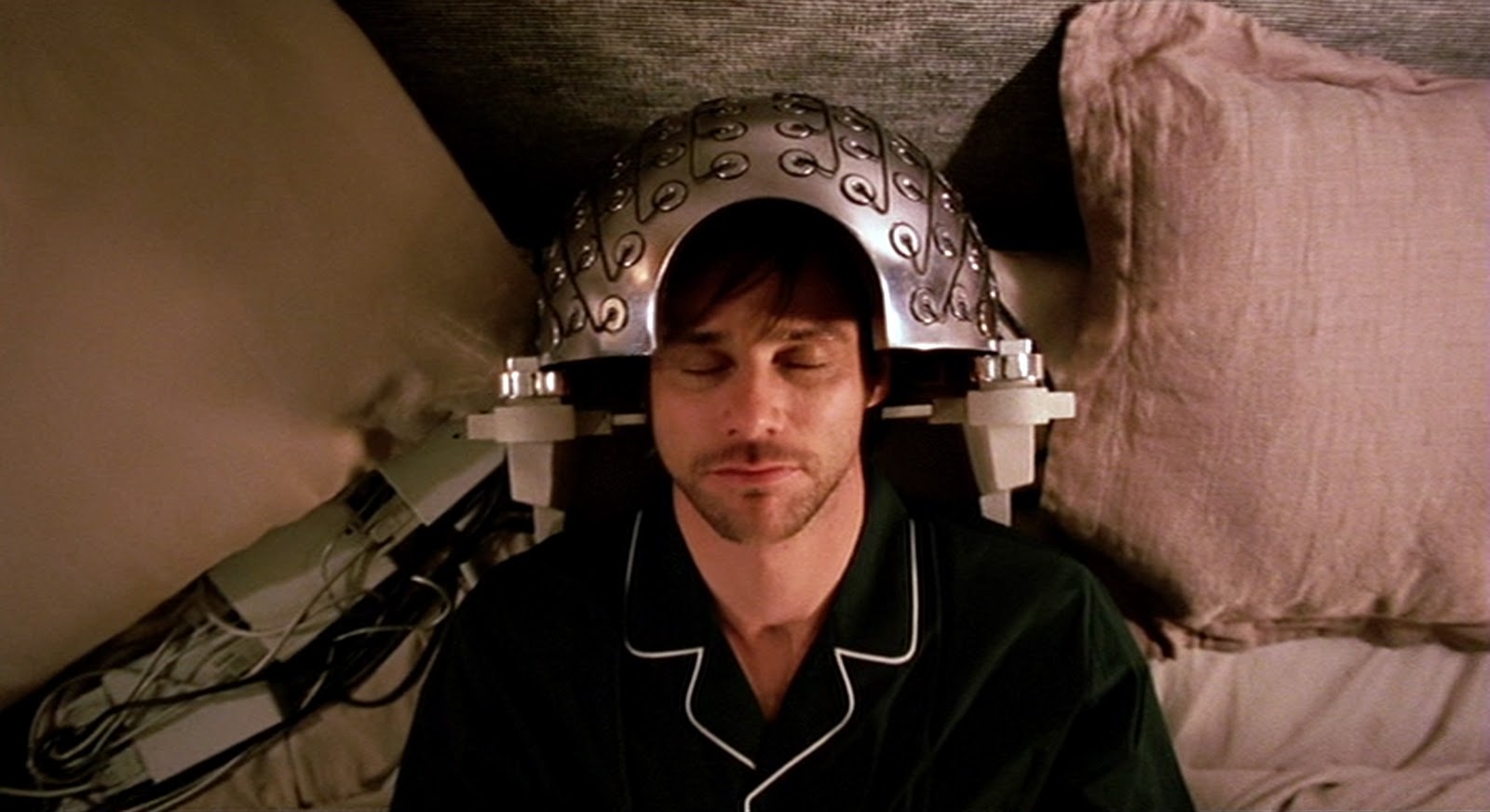16 years ago, the timeless Eternal Sunshine of the Spotless Mind was released on the big screen. Major work of Michel Gondry, with a five-star cast (Jim Carrey, Kate Winslet, Kirsten Dunst, Mark Ruffalo, Elijah Wood) and an original screenplay, the film has not taken a wrinkle, and still transports us with as much pleasure in the memories of Joel Barish, in search of lost time and his fading love. In this precise and fantastic autopsy of an uncertain love story, Gondry gives us his vision of memories, innocence and knowledge, the feeling that brings us irremediably closer to each other.Back on one of the most beautiful films of the 2000s, to discover or rediscover now on Netflix. Joel Barish and Clementine Kruczynski live a tumultuous love story, in which the two no longer seem to be happy. When Joel discovers that Clementine has erased their entire relationship from his memory, he decides to do the same by going to Lacuna, the practice that proposes a new process to remove a whole part of the patient's past. Here we are immersed in the increasingly blurred memories of a passionate love story between two beings that everything seemed to oppose, but who nevertheless attract irremediably. The kind Joel will go back in time memory by memory, while the scientists of Lacuna also spend an eventful night. Complex in its structure and rich in its emotions, Eternal Sunshine of the Spotless Mind questions the importance of the past and memories, as painful as they are, in the face of an often idealized innocence. In a film of tender anticipation and always very accurate, distressing as unpredictable, Gondry delivers a universal vision of the world, through only a few characters as strong as each other. 
The Science of Memories
"One day I will remember in the scene, I will lose myself in the past" wrote Roland Barthes in his Fragments of a love speech. In the world of Eternal Sunshine, memories fade like the pages of a diary that are torn away, and Joel gets lost with us for the last time in the past. Eternal Sunshine of the Spotless Mind deploys from the first moments a disjointed construction, complex but nevertheless very rich. Obscure at first, the film alternates between past and present, altered memories and erased memories, to lose us more and more in the meanders of Joel's feelings; But as the viewings progress, the pieces all come together, and the film is savored more and more and is discovered in each of its details. Like a search for lost time, Joel returns to his memories and, in desperate attempts, tries to save what is left , to finally continue to remember, to continue to love. The fragments of memories thus accumulate like grains of sand, to form a large beach on which the two lovers never cease to meet. And this range of memories thus presented leads us to ask ourselves several questions: what are memories about? To the objects that are presented to Joel one by one during the mapping of his brain? To the words exchanged with Clementine? And are the feelings experienced only due to memories? Or again to words and objects? A usurpation would therefore be possible in this theory, and yet Patrick, one of Lacuna's employees, shows that usurpation by words and objects is not enough. The chemistry between Joel and Clementine is a feeling apart, uncontrollable and incomparable, which nothing can erase. Time travel has always fascinated filmmakers; Eternal Sunshine of the Spotless Mind tells a kind of timeless time travel, the most human journey there is, that of man through his own memories who tries to catch up with time, like Jon Brion's musical theme whose background is played backwards. 
Autopsy of a love story
In Eternal Sunshine of the Spotless Mind, Michel Gondry dissects with tenderness, analyzes the springs of memories, feelings, love, weariness that settles, rupture, fear, mourning the other party forever. We could thus see in Joel's story the different stages of mourning his relationship with Clementine: denial, the refusal to admit that Lacuna can exist; anger at Clementine; bargaining, through the attempt to make the memory of the loved one escape into other memories; depression, the feeling that everything is falling apart like the different settings; and finally acceptance, which makes it possible to find the key: go to Montauk. Joel's journey confronts the reverse chronology of rewound memories, in a double reading of the film. We thus follow through the character's point of view alone the journey of two fragile beings in their own way, ready to break at any moment like the thin layer of ice of the frozen lake, which nevertheless allows them to find themselves in the most beautiful of moments. To play this Joel to perfection, Jim Carrey unrecognizable trades his grimaces for shy smiles, and thus fades the actor in favor of his character, more credible and touching than ever. If we had to release a single emotion, a feeling stronger than the others and omnipresent, it would surely be anguish: the anguish of abandonment, of disappearance. This anxiety is paradoxically expressed in two ways: on the one hand, the anxiety of erasing something that will disappear forever, so that it can no longer be repeated in the same way. On the other, the anguish of remembering these moments, these memories, knowing that they can never happen again. The anguish of the past forever lost, whether erased or not. The fear of the passage of time, which carries everything in its path, which installs weariness and brings out resentments, exacerbates defects. Lacuna claims to heal these anxieties and fears by erasing everything, by formatting the mind, as if memories were only material data used only by negative feelings. Thus Eternal Sunshine of the Spotless Mind is positioned in its first moments as an ode to innocence, for lost beings in search of healing. 
Innocence regained
Alexander Pope, English poet of the seventeenth century, writes his few lines that will give its title to the film, through the quote of Mary, the assistant of the doctor inventor of Lacuna:
"How happy is the blameless Vestal's lot! The world forgetting, by the world forgot; Eternal sunshine of the spotless mind! Each pray'r accepted, and each wish resign'd. "
"Eternal sunshine of the spotless mind" sounds like an ode to innocence, a sublimation of being who ignores the evils of the world, who preserves suffering by removing the evil and who finds serenity and happiness in candor. This is the promise of Lacuna: to erase suffering to leave the mind as immaculate from all fear and sadness, to remove heartaches, deaths, painful memories. And what an incredible promise for the human being to erase the suffering that destroys and buries the spirit! Michel Gondry translates innocence to the image through a multitude of details and tinkering of which only he has the secret: as the memories fade, the books become blank pages, the sets collapse, and as Joel escapes, Objects and materials are transposed from memories to memories. Then comes the deconstruction of this innocence, the disillusionment that puts back in place all the importance of memory. It is then that all the secondary characters find their place, in key roles that enrich the reading of the story of Joel and Clementine. The idealist Dr. Howard, the innocent Mary, the skeptic Stan and the inexperienced Patrick each carry their own vision of memory and memory, and each embodies a form of contestation of this innocence. Because how to evolve, grow, learn, if all the difficult elements are erased? Doesn't suppressing memories mean repeating events indefinitely, in a kind of fatalism that attracts human beings to reproduce the same actions over and over again, secretly hoping for different results?  Thus the eternal brilliance of the immaculate spirit is quickly clouded by the snow and rain that falls in Joel's head throughout this journey to oblivion, as a warning to darker and foggy days. Knowledge and lies irremediably regain their place in everyday life, the mirage collapses. And yet, like the plans that keep separating and joining Joel and Clementine, the two beings destined to meet forever brave the storm in a hopeful outcome; The ode to innocence turns into an ode to happiness, because losing oneself in the past brings a sweet and essential nostalgia, which transcends sorrows. An incredible journey into the heart of a storm under a skull, Eternal Sunshine of the Spotless Mind shines by its accuracy, audacity, originality of treatment and the performance of its actors. A masterpiece that we never get tired of, and that takes us every time willingly into the fantastic universe of Michel Gondry, to discover or rediscover now on Netflix.
Thus the eternal brilliance of the immaculate spirit is quickly clouded by the snow and rain that falls in Joel's head throughout this journey to oblivion, as a warning to darker and foggy days. Knowledge and lies irremediably regain their place in everyday life, the mirage collapses. And yet, like the plans that keep separating and joining Joel and Clementine, the two beings destined to meet forever brave the storm in a hopeful outcome; The ode to innocence turns into an ode to happiness, because losing oneself in the past brings a sweet and essential nostalgia, which transcends sorrows. An incredible journey into the heart of a storm under a skull, Eternal Sunshine of the Spotless Mind shines by its accuracy, audacity, originality of treatment and the performance of its actors. A masterpiece that we never get tired of, and that takes us every time willingly into the fantastic universe of Michel Gondry, to discover or rediscover now on Netflix.






































